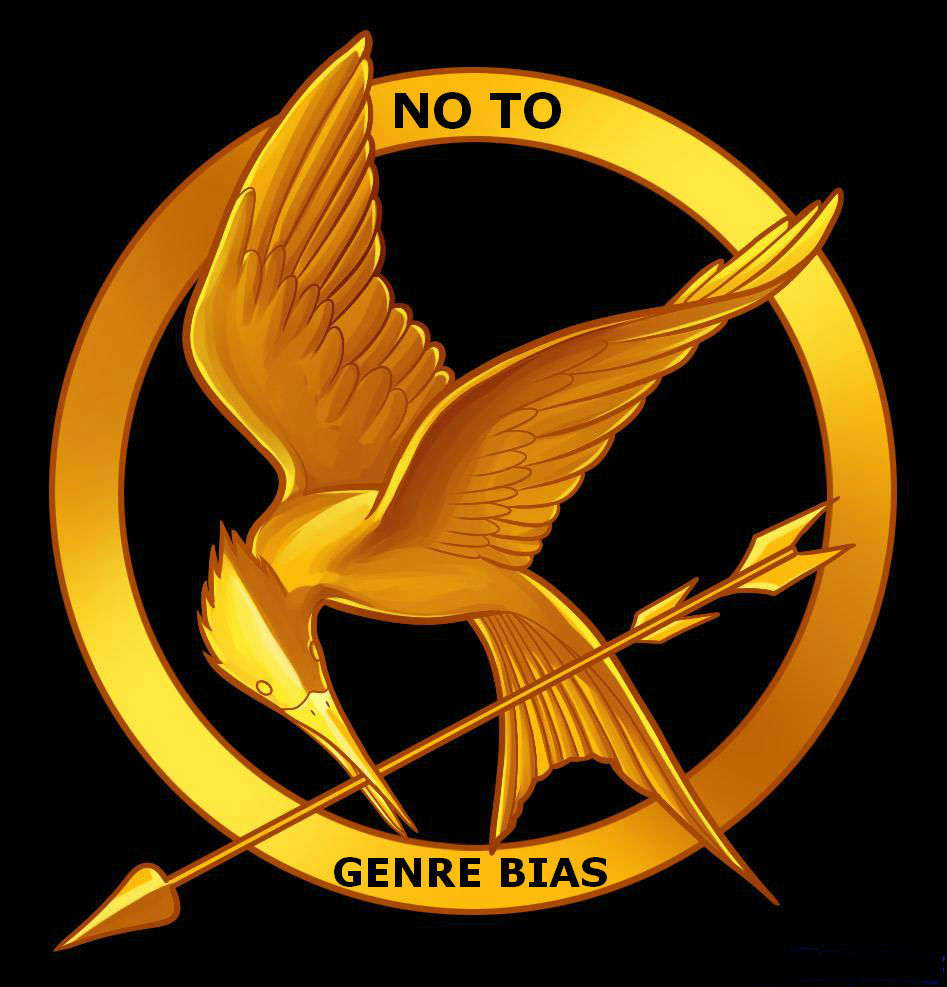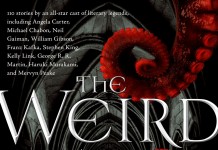The thorny – but probably not horny – question of gender and genre resurfaced with the release of the contender list for this year’s UK Arthur C. Clarke Award – or rather, lists. Because this year, the organizing committee has decided to split the selection process by releasing a first all-female list of submissions ahead of a male list, to appear slightly later. This follows the controversy over 2013’s all-male shortlist. The full list is available here.
 “We’ve always intended this as a great way to showcase the full breadth of titles in contention and, crucially, to allow science fiction readers everywhere the chance to have a little fun creating their own nominations, trying to second guess the final shortlist and gaining a deeper understanding of the challenges faced by the judging panel every year,” reads the Award committee preamble. “This year we’ve chosen to do this in two parts, first releasing this list of the thirty-three female authors submitted for the prize on Thursday 16th Jan, which we hope will be a positive contribution towards further raising the profile of women writers of science fiction in the UK and beyond.”
“We’ve always intended this as a great way to showcase the full breadth of titles in contention and, crucially, to allow science fiction readers everywhere the chance to have a little fun creating their own nominations, trying to second guess the final shortlist and gaining a deeper understanding of the challenges faced by the judging panel every year,” reads the Award committee preamble. “This year we’ve chosen to do this in two parts, first releasing this list of the thirty-three female authors submitted for the prize on Thursday 16th Jan, which we hope will be a positive contribution towards further raising the profile of women writers of science fiction in the UK and beyond.”
Any Award shortlist that includes titles by Margaret Atwood and Kameron Hurley is in no danger of looking shabby. And that’s one reason to conjecture that the 2013 list was such an extraordinary outcome that it must have been down to sheer blind chance, not overt prejudice. The 2013 jury itself consisted of Robert Grant, Juliet E. McKenna, Nickianne Moody, Ruth O’Reilly, Liz Williams, and Andrew M. Butler – four women to two men and hardly likely to position itself as a bastion of sexism. And the very first Arthur C. Clarke Award ever in 1987 was given to a novel by a woman author: Margaret Atwood’s [easyazon-link asin=”B003JFJHTS” locale=”us”]The Handmaid’s Tale[/easyazon-link].
But this quick vindication of the Arthur C. Clarke Award itself shouldn’t draw attention away from the issue of gender prejudice and stereotyping in (some) genres. We’ve already seen the disastrous influence that gender stereotyping can have in comics, for instance. And Jonathan Franzen serves as ample evidence that gender prejudice is still influencing even mainstream “literary” fiction. And the debate over sexism in science fiction – well, it isn’t a debate any more as much as a sustained and brutal rearguard action by an apparently all-male rump, assisted by charming guerrilla tactics such as the #gropecrew hashtag harassment of female cosplayers and science fiction convention attendees.
In the circs, it’s hardly surprising that Tor UK editorial director Julie Crisp cited 78 percent of SF submissions to Tor as coming from men. Chicken or egg? (And no chick lit jokes, promise …) “As a female editor it would be great to support female authors and get more of them on the list,” Crisp says, creditably enough. “BUT they will be judged exactly the same way as every script that comes into our in-boxes. Not by gender, but how well they write, how engaging the story is, how well-rounded the characters are, how much we love it.”
That’s a laudable opinion from a respected publisher, and I applaud it as far as it goes. Compulsory positive discrimination in genre publishing is no way to fix any problem of this kind. But the question still arises: Does the submission balance work out that way because more male authors choose to write SF? Or because female authors knowingly shun a genre where they know they’ll face a harder sell?
The crossover success of a novel like Suzanne Collins’s [easyazon-link asin=”0545626382″ locale=”us”]The Hunger Games[/easyazon-link] highlights the debate. Young adult, which is the category that The Hunger Games first snuck in on, has the highest proportion of female authors on Crisp’s list – 68 percent. And yet it’s grown into a highly influential dystopian science fiction phenomenon. Would Collins have had such success if she’d tried to sell the book as a straight SF title? Interesting question.
Do male writers have the opposite problem? Jack Nicholson’s Melvin Udall obviously didn’t face an uphill struggle in [easyazon-link asin=”B000I8HIO0″ locale=”us”]As Good As It Gets[/easyazon-link] to be accepted as a male writer of romantic fiction. But it’s hard to conclude from the evidence that your chances of success in a genre, and your choices about it, will not be impacted by your gender.































Sales are much, much higher in romance as opposed to science fiction. A writer who can write both will probably choose to write romance if she/he wants to increase the possibility of being traditionally published and having a better income.
Fantasy has much better sales than sf, and urban fantasy, in particular, has a cross-gender appeal that attracts lots of readers and writers of both genders.
In other words, gender discrimination isn’t the only answer to why more men than women are published in sf.
For genre fiction I tend to prefer hard science fiction or crimenoir. Traditionally, the sciences have been mostly male and so that kind of science fiction skews towards male authors, though that’s changing slowly; I do think good hard science fiction needs a science based background. I don’t favor fantasy very much and truly dislike YA – two genres that seem dominated by women.
Although there are many women mystery authors, there seen few who write crimenoir.
Greg,
If, by “I do think good hard science fiction needs a science based background” you mean formal instruction, a sciences degree and/or time spent in the profession, I tend to disagree. It ignores a basic tenet of writing, which is: You don’t have to be an expert on a subject to write well about it; you just have to be a good writer. Any author who can do their own research is capable of learning enough about any field, including hard science, to turn out a good story; therefore, the idea that more males write hard SF because there are more of them in hard science fields or with degrees is more conceit than truth.
By the same token, men also write YA and romance, because they’ve done enough research into the genre to be able to write it. Gender (and genre) misconceptions cause most of the disparity… as well as interest: It goes to follow that if more males like SF than romance, more of them will write SF; and if more females prefer romance to SF, they’ll write romance.
Good article! and re “Would Collins have had such success if she’d tried to sell the book as a straight SF title? Interesting question.” Yes a good question. The sci fi genre is really changing in how it is being presented, even Adam Sternbergh’s new future noir novel about a New York City hit by a dirty bomb in Times Square is being marketed as sci fi noir but it is not sci fi at all. It is a noir thriller set in the near future. That is not sci fi. So same with Collins. If her book had been presented as SF, it might not have travelled so far. In Taiwan, Hugh Howey’s sci fi novel series WOOL has been presented to Taiwanese readers as just a good novel, without mentioning it’s sci fi at all, since Taiwanese people do not read sci fi in general. They go to see SCI FI movies from Hollywood with big stars from the West but they stay away from reading SF novels. So the marketing people here decided to do the translation in Taiwan as a general readership novel and it became a bestseller that way. Food for thought.